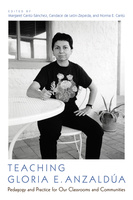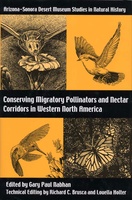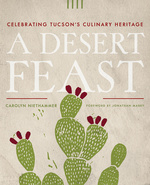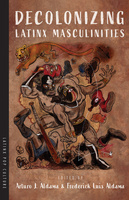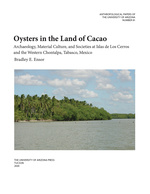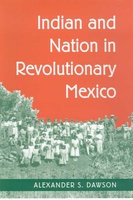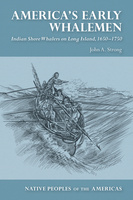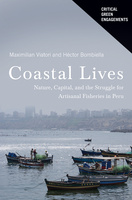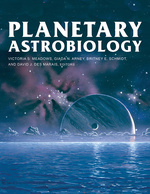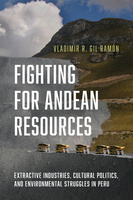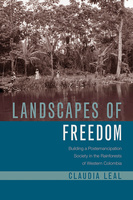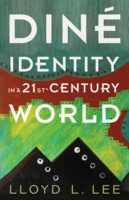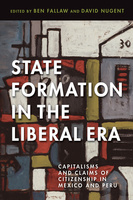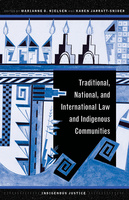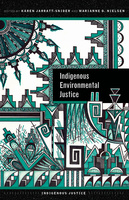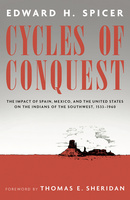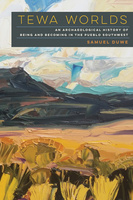The University of Arizona Press is the premier publisher of academic, regional, and literary works in the state of Arizona. They disseminate ideas and knowledge of lasting value that enrich understanding, inspire curiosity, and enlighten readers. They advance the University of Arizona’s mission by connecting scholarship and creative expression to readers worldwide.
La Gente
Struggles for Empowerment and Community Self-Determination in Sacramento
Reflections of a Transborder Anthropologist
From Netzahualcóyotl to Aztlán
Cultura y Corazón
A Decolonial Methodology for Community Engaged Research
Activist Leaders of San José
En sus propias voces
A Marriage Out West
Theresa and Frank Russell’s Explorations in Arizona, 1900–1903
Traditional Arid Lands Agriculture
Understanding the Past for the Future
La Raza Cosmética
Beauty, Identity, and Settler Colonialism in Postrevolutionary Mexico
Colonial Legacies in Chicana/o Literature and Culture
Looking Through the Kaleidoscope
Colonial Legacies in Chicana/o Literature and Culture traces the development of Chicana/o literature and cultural production from the Spanish colonial period to the present. In doing so, it challenges us to look critically at how we simultaneously embody colonial constructs and challenge their legacies.
Binational Commons
Institutional Development and Governance on the U.S.-Mexico Border
Teaching Gloria E. Anzaldúa
Pedagogy and Practice for Our Classrooms and Communities
Conserving Migratory Pollinators and Nectar Corridors in Western North America
A Desert Feast
Celebrating Tucson's Culinary Heritage
This book offers a food pilgrimage, where stories and recipes demonstrate why the desert city of Tucson became American’s first UNESCO City of Gastronomy. You’ll meet the farmers, small-scale food entrepreneurs, and chefs who are dedicated to making Tucson taste like nowhere else.
Innocent Until Interrogated
The True Story of the Buddhist Temple Massacre and the Tucson Four
Decolonizing Latinx Masculinities
Oysters in the Land of Cacao
Archaeology, Material Culture, and Societies at Islas de Los Cerros and the Western Chontalpa, Tabasco, Mexico
America's Early Whalemen
Indian Shore Whalers on Long Island, 1650–1750
Coastal Lives
Nature, Capital, and the Struggle for Artisanal Fisheries in Peru
Planetary Astrobiology
Fighting for Andean Resources
Extractive Industries, Cultural Politics, and Environmental Struggles in Peru
Fighting for Andean Resources offers a singular contribution to the literature critiquing monolithic views of nation-state dynamics and globalization. Vladimir R. Gil Ramón examines the protocols of accountability and the social critique of the application of environmental impact assessments and safeguard policies. His analysis reveals the complex mechanisms for legitimizing decision-making and adds to an understanding of everyday state-nation conflicts and negotiations.
Landscapes of Freedom
Building a Postemancipation Society in the Rainforests of Western Colombia
Girl of New Zealand
Colonial Optics in Aotearoa
Girl of New Zealand resurrects Māori women from objectification and locates them firmly within Māori whanau/families and communities.
Diné Identity in a Twenty-First-Century World
State Formation in the Liberal Era
Capitalisms and Claims of Citizenship in Mexico and Peru
Traditional, National, and International Law and Indigenous Communities
This volume of the Indigenous Justice series explores the global effects of marginalizing Indigenous law. The essays in this book argue that European-based law has been used to force Indigenous peoples to assimilate, has politically disenfranchised Indigenous communities, and has destroyed traditional Indigenous social institutions. The research in this volume focuses on the resurgence of traditional law, tribal–state relations in the United States, laws that have impacted Native American women, laws that have failed to protect Indigenous sacred sites, the effect of international conventions on domestic laws, and the role of community justice organizations in operationalizing international law.
Indigenous Revolution in Ecuador and Bolivia, 1990–2005
In the fifteen-year span from 1990 to 2005 uprisings of the indigenous peoples of Ecuador and Bolivia changed their societies forever. The combination of mass mobilization, elections, and indigenous socialism created a new form of twenty-first-century revolution that applies to cultures far beyond the Andes. Jeffrey M. Paige’s interviews present the powerful personal experiences and emotional intensity of the revolutionary leadership.
Indigenous Environmental Justice
The book explores the ongoing effects of colonization and emphasizes Native American tribes as governments rather than ethnic minorities. Combining elements of legal issues, human rights issues, and sovereignty issues, Indigenous Environmental Justice creates a clear example of community resilience in the face of corporate greed and state indifference.
Cycles of Conquest
The Impact of Spain, Mexico, and the United States on the Indians of the Southwest, 1533–1960
To the Last Smoke
An Anthology
This anthology offers a unique and sweeping view of the nation’s fire scene by distilling observations on Florida, California, the Northern Rockies, the Great Plains, the Southwest, the Interior West, the Northeast, Alaska, the oak woodlands, and the Pacific Northwest into a single, readable volume. The essays offer a color-commentary companion to the play-by-play narrative offered in Pyne’s Between Two Fires: A Fire History of Contemporary America.
To the Last Smoke is Stephen J. Pyne’s way of “keeping with it to the end,” encompassing the directive from his rookie season as a wildland firefighter to stay with every fire “to the last smoke.”











